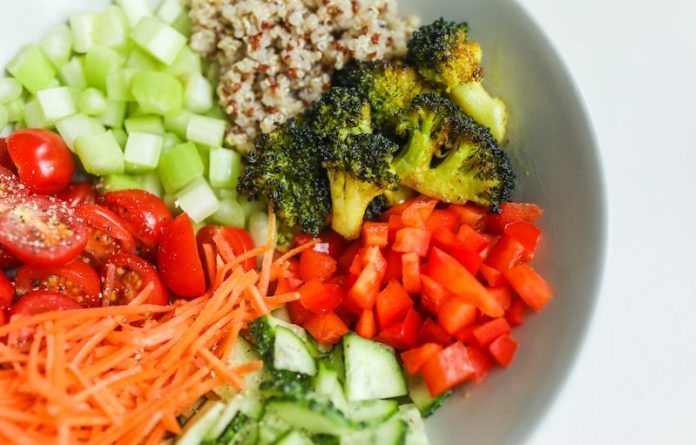
Shedding excess pounds is challenging, but it is only half the weight loss journey.
After reaching a goal weight, patients must commit to healthy eating and other lifestyle changes that will keep off the pounds.
“Bariatric surgery and weight loss medications are powerful tools, but they are one piece of the bigger picture. Mindful eating and good nutrition are key ingredients to improved health and well-being,” said surgeon Jeremy Korman, MD, medical director of Cedars-Sinai Marina del Rey Hospital’s Bariatric Program.
“We spend considerable time preparing our patients for a healthy lifestyle. This knowledge makes them more likely to achieve and maintain their weight loss and health potential.”
To help patients embrace healthy habits after surgery, Korman and the team at Marina Weight Management Center—including a dietitian, psychologist, physical therapist, nurses, surgeons, and a bariatrician—created a guide to eating well and keeping weight off.
This new cookbook includes dozens of recipes, advice for meal planning and grocery shopping, and a framework for making healthy food choices.
“You want to look at your body as a temple. It’s the only body you will ever have,” said Bridgette Agee, RN, director of the Bariatric Program.
“Maintaining significant weight loss and eating healthy can lead to so many health benefits: controlling diabetes, improved joint and heart health and increased energy levels.”
To mark World Obesity Day on March 4, Korman and Agee are sharing tips and recipes from the “Eating Well” guide to inspire others, no matter where they are on their weight loss journey.
Planning for long-term health
Preparing healthy food might feel challenging at first, but it gets easier once it becomes a habit.
All foods can be part of a healthy lifestyle as long as we avoid eating too much of the less nutritious options.
For those having a hard time finding the right balance, Korman and Agee offer a few suggestions to getting back on track:
What’s my motivation? When choosing between healthy and less healthy options for a meal, think about the direct benefits of eating the healthy option.
For example, if deciding between a pastry or a healthy omelet for breakfast, focus on the benefits derived from the omelet—avoiding an energy crash or distracting hunger before lunch.
Nutrient-dense vs. energy-dense. Rather than regarding foods as good or bad, think of them as more or less beneficial.
Aim to eat 80% of calories from nutrient-dense foods high in vitamins, minerals, lean protein, and healthy fats.
Then 20% can come from less beneficial energy-dense foods, such protein bars, energy drinks and snacks with added sugar.
Know when to stop. The body sends the brain a signal when it has had enough to eat. This signal doesn’t work well in some people, who need to train themselves to notice when they are full.
Eating foods that make one feel full longer—fish, avocado, steel-cut oatmeal—helps the body get accustomed to feeling satisfied.
In contrast, nutrient-poor carbohydrates—bagels, pasta, white bread—are more likely to cause hunger pangs.
Eat mindfully. Listen to the body. Eat when you are hungry and don’t wait until you are starving. Chew slowly, noticing how the body reacts. Stop eating when full, even if food remains on the plate.
Pay attention to the difference between hunger (the body needs food) and cravings (short-lived desires unrelated to physical hunger).
Stay hydrated by drinking 48 to 64 ounces of water a day so the body doesn’t mistake dehydration for hunger.
Recipes for healthy eating
Stocking the kitchen with ingredients for a variety of recipes for delicious, healthy meals increases the odds of striking that 80/20 balance of nutrient-dense versus energy-dense food.
Korman and Agee recommend selecting “real” whole foods rather than diet items.
If you care about weight loss, please read studies that early time-restricted eating could help lose weight, and popular weight loss diet linked to heart disease and cancer.
For more information about health, please see recent studies that vitamin D could help lower the risk of autoimmune diseases, and results showing a common diabetes drug may lead to better weight loss.



